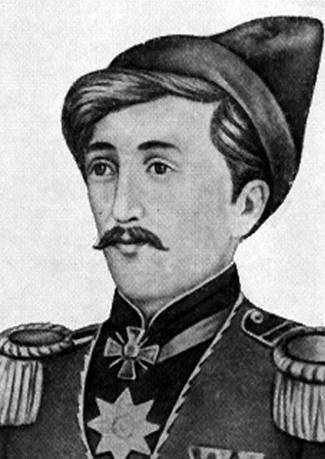Abbasgulu agha Bakikhanov
Birth date:
21 June 1794
Death date:
31 May 1847
Abbasgulu agha Bakikhanov (Gudsi) was born in the village of Amirjan (Khila) in Baku. He lived in Baku until the age of 8, and spent his early childhood in the villages of Amirjan, Mashtaga, Balakhani, and Ramana in Absheron. In 1802, his father was defeated by his cousin Huseyngulu Khan in the battles for the khanate throne, and was forced to move to Guba, and then to the village of Amsar, which his uncle Fatali Khan had given him. In 1819, at the invitation of the chief judge of the Caucasus, General Alexei Yermolov, he was accepted as an interpreter of oriental languages in the Caucasus Main Military Administration in Tbilisi and worked in this position for 26 years. He participated as an interpreter in the signing of the Turkmenchay (1828) and Gulistan treaties (1813). The Tbilisi environment, meetings with European and Russian poets and intellectuals left a deep mark on his worldview. Here he met Alexander Griboyedov. The German poet Friedrich Bodenstedt, who lived in Tbilisi at that time, highly appreciated his work in his work "A Thousand and One Days in the East". He laid the foundation of Azerbaijani historiography with his work "Gulustani-Iram". Under the pseudonym "Qudsi", he is the author of poems in Azerbaijani, Arabic and Persian languages. He is the author of the works "Qanuni-Qudsi", "Asrarul-Malakut", "Tahzibul-Akhlaq", "Eynul-Mizan", and was one of the organizers of the scientific and literary meeting "Gulustan" in Guba (1835). As a journalist, he participated in the activities of the newspapers "Tiflisskiye Vedomosti", "Zakavkazskiy Vestnik", "Kavkaz". At the end of his life, he traveled to the Middle East. Abbasgulu Agha Bakikhanov died of cholera in a place called Wadi Fatima in 1847 while traveling from Mecca to Medina, and was buried there.

Filmography
-
 Abbas Mirza Sharifzadeh
Casting manager
Abbas Mirza Sharifzadeh
Casting manager


